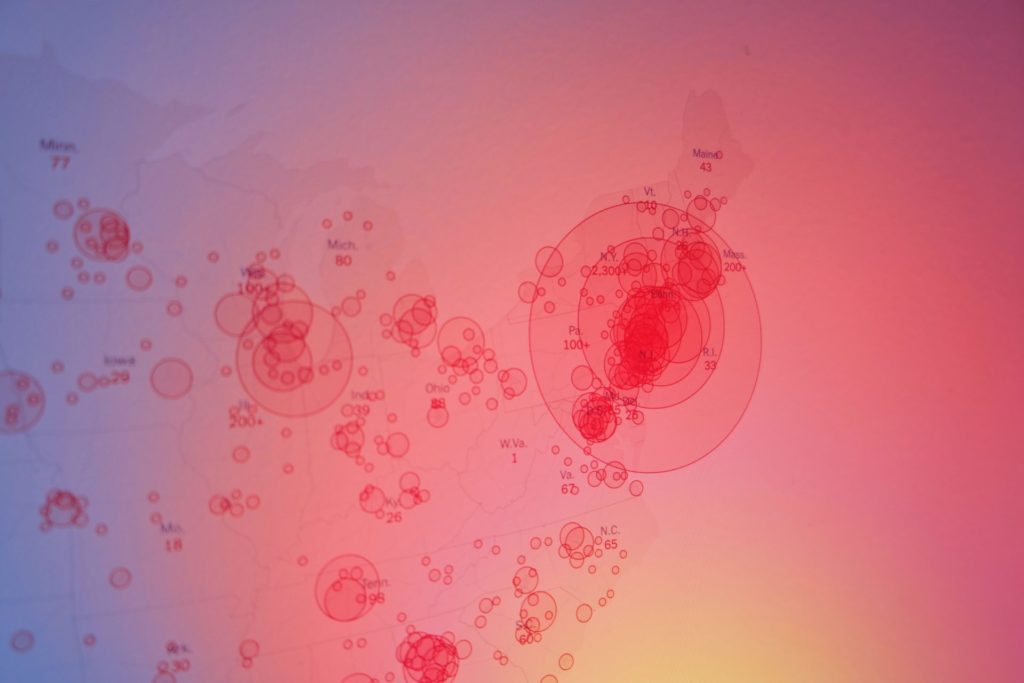Editorial
A dangerous misinfodemic spreads alongside the SARS-COV-2 pandemic
Special Issue on COVID-19 & Misinfodemics, Guest-Editors’ Editorial.

On January 7th, 2020, Chinese authorities identified a new type of coronavirus, which was subsequently named severe acute respiratory syndrome coronavirus 2 (SARS-CoV-2).1https://www.who.int/docs/default-source/coronaviruse/situation-reports/20200121-sitrep-1-2019-ncov.pdf?sfvrsn=20a99c10_4 Within two months, the world bore witness to the first pandemic caused by a coronavirus.2https://www.who.int/dg/speeches/detail/who-director-general-s-opening-remarks-at-the-media-briefing-on-covid-19—11-march-2020 As of this writing, there have been 4,013,728 confirmed coronavirus disease (COVID-19) cases and 278,993 confirmed deaths globally from this novel virus. 3https://covid19.who.int During this time, we have scrambled to learn as much as possible about the novel virus and the disease it causes. Epidemiologists are studying the incidence and distribution of COVID-19, including why certain individuals are infected at higher rates and why others suffer worse outcomes. Research scientists are working to develop a vaccine and new treatments, and to adapt existing treatments. Healthcare providers are learning on the ground about how this disease progresses and how best to treat patients suffering from COVID-19. Other public health experts are seeking to understand how to prevent infection and protect the most vulnerable populations.
As health authorities around the world struggle to respond to this pandemic, they are challenged by the misinfodemic that has followed, where the spread of health misinformation online has contributed to the spread of health and disease outcomes offline. The public has had an insatiable appetite for information about this new virus and its disease. Public health experts have communicated what they have learned in this short time, what is not known, what they are doing to fill the gaps. They have also made recommendations about how individuals can protect themselves, as well as the policies communities should implement to mitigate the impact of this pandemic based on what is known to date. However, the viral spread of false information has caused confusion. Some public health and political leaders have struggled to maintain public trust in their recommendations. Mis-and disinformation and an inability to effectively communicate risk to the public threaten our ability to effectively respond to this global pandemic.
In this special issue of the HKS Misinformation Review, we focus on these threats. We present a spectrum of articles that reflect innovative work and interdisciplinary research methods used to examine how misinformation challenges are taking shape, are impacting and are impacted by the COVID-19 pandemic. Given the cross-discipline nature of this topic, research and commentaries included in this special issue yield insights that cut across behavior science, communications, political science, informatics, and public health. We begin this special issue with investigations related to beliefs and public perceptions related to COVID-19 information—both accurate information and conspiracy theories. The first research article, written by a team of researchers from the University of Miami and the University of Louisville, explores psychological factors related to beliefs in COVID-19 conspiracies. The empirical evidence presented in this piece highlights the spread and motivations behind beliefs in COVID-19 conspiracy theories, and the forms of preventative actions that can serve to mitigate negative societal consequences associated with these beliefs. We then move to Dr. Kathleen Hall Jamieson and Dr. Dolores Albarracin’s investigation of public understanding related to key pieces of COVID-19 information, as they examine correlations between the use of various media sources and misperceptions related to COVID-19. Based on their research, Dr. Jamieson and Dr. Albarracin identify key opportunities for interventions that can be implemented by media channels, media researchers, and misinformation responders. We then include three enlightening commentaries: one from Dr. Elaine Nsoesie and Olubusola Oladeji, focused on a framework for classifying pandemic-related misinformation into four categories that inform response approaches; another from Julie Ricard and Dr. Juliano Medeiros, who examine the “coronavirus denialist movement,” and the forms of COVID-19 misinformation and disinformation that undermine public health response efforts in Brazil; and the third written by the HKS Misinformation Review Managing Editor Costanza Sciubba Caniglia, examining how global power dynamics are manifesting in disinformation campaigns and propaganda related to COVID-19 in Italy. We conclude with an analysis of search engine results for “coronavirus” in English, Russian, and Mandarin written by Dr. Mykola Makhortykh, Aleksandra Urman, and Dr. Roberto Ulloa, highlighting differences in the types of resources provided to users across search engines and languages.
In this special issue, we highlight some of the challenges related to COVID-19 misinformation, knowing that while COVID-19 is a global pandemic, pandemics are experienced locally. In contexts around the world, varying degrees of quality information access can greatly impact health perceptions, behaviors, decisions, and outcomes in pandemic contexts, where misinformation online can lead to real-world health and disease. Through interdisciplinary research, we can gain a stronger understanding of the perceptions and beliefs that arise in pandemic contexts, as well as the factors that can exacerbate belief in, and actions taken based on health misinformation. Further, with frameworks that help us better understand the formats of poor-quality health information, as well as the essential, contextualized insights about how misinfodemics are experienced by different populations, we can apply research findings to respond to prolonged and crisis public health settings in localized, specific and actionable ways.
The HKS Misinformation Review is dedicated to improving understanding of the phenomenon of misinformation— including its prevalence, diffusion, and impact worldwide. We hope this special issue catalyzes further discussion among the public, media, and policymakers about how misinformation hinders our collective ability to protect the public’s health from COVID-19 specifically, and infectious diseases generally. More importantly, we hope this collection of articles aids in preventing and mitigating mis- and disinformation that threaten global health security.
